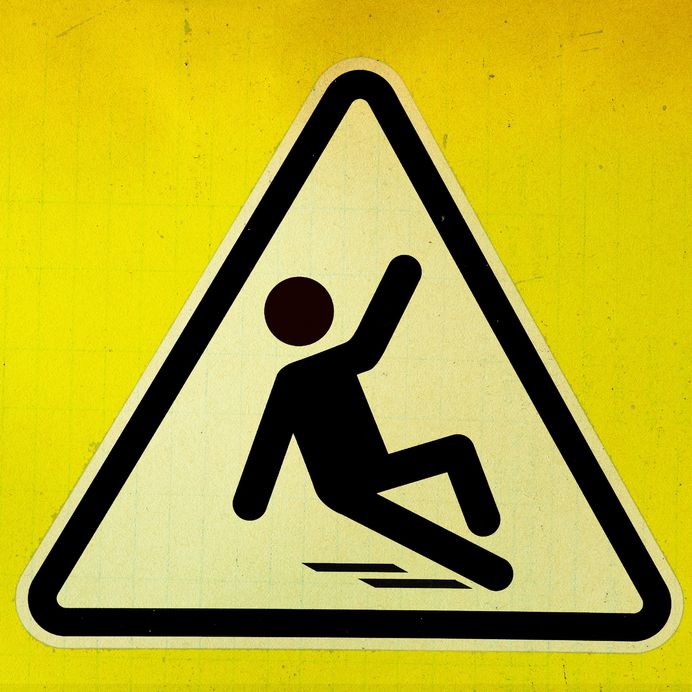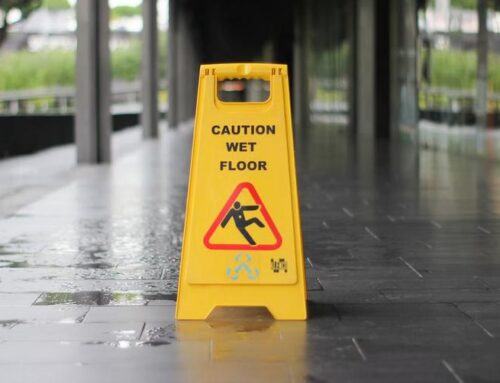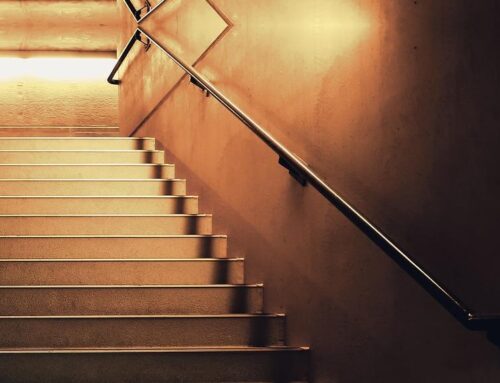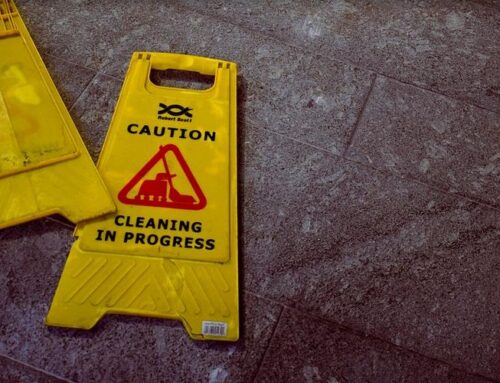Your Indiana Lawyer- William Bill Hurst
Statistics
Over 540,000 Slip-Fall injuries, requiring hospital care, occur in in our country each year. These falls resulting in injuries count for more than 300,000 disabling injuries per year. One in three serious orthopedic injuries for seniors result in death, within one year of the accident and Slip-Falls account for over 20,000 fatalities each year. It is the second leading cause of accidental death and disability after automobile accidents. Accidently slipping, tripping and falling is the number one cause of accidents in the businesses, hotels, and restaurants and 70% occur in flat and level surfaces. Accidental falls are the leading cause of death in the construction sites and the source of more than 57% of all disabling injuries. There are obvious social burdens related to this problem, including Worker’s Compensation claims of over $1.8 Billion a year. The total expense resulting from slip-fall injuries alone is a $100 million per day problem. https://hspsupplyinc.com/stats.htm
Applicable Law- Premises Liability
Most fall-down cases are encompassed by what is known as a “premises liability” case. To determine whether a landowner is liable for an injury incurred on his or her property (premises liability) the plaintiff must show: that the landowner had a duty that the standard of care owed to the plaintiff was breached by the landowner, and that the damages were “causally” related to the breach. Many premises liability cases in Indiana are litigated under the “Breach” prong of the premises liability test.
“Breach” of a Duty
On February 21, 2012 the Court of Appeals of Indiana decided Schulz v. Kroger, which is considered one of the most significant Premises Liability decisions in recent times. In Schulz v Kroger, Mr. Schultz slipped and fell over a clear liquid in a Kroger grocery store. In that case, the Court found that Kroger had no actual or constructive knowledge of the spill. No Kroger employee had actual knowledge (saw or was told of the spill) and for constructive knowledge to attach the condition must have “existed for such a length of time and under such circumstances that it would have been discovered in time to have prevented injury if the storekeeper, his agents or employees had used ordinary care.” Schulz v. Kroger Co., 963 N.E.2d 1141, 1144 (Ind. Ct. App. 2012). Kroger had procedures in place that allowed the judge to conclude that the spill had happened no more than 10 minutes before the patron’s fall. In Schulz, no liability was imputed to Kroger and Summary Judgment in favor of Kroger was appropriate. The Court’s main focus in Schulz was time, they looked at Kroger’s procedures for cleaning up spills as well as the evidence before them and decided that given the facts the spill had happened no more than 10 minutes prior to the fall which was not enough time to put Kroger on notice. Therefore, it is important to consider the period of time that elapsed between the incident and the spill.
Types of Visitors
As a further wrinkle to a fall down cases, Indiana has recognized three categories of individuals owed a duty by property owners: trespassers, licensees, and invitees. Each category has a different standard of care owed to them by the property owner.
Licensees and trespassers are individuals who are on the premises of another for their own “convenience, curiosity or entertainment.” Gaboury v. Ireland Road Grace Brethren, Inc., 446 N.E.2d 1310, 1314 (Ind. 1983). The two are distinguished by the fact that licensees have received the landowner’s permission to enter or remain on the land while trespassers have not. Invitees are persons who are invited or permitted to enter or remain on the premises for the benefit of the owner, usually to do business, or persons who enter land open to the public. 23 Ind. Prac., Personal Injury Law & Practice § 3:14. Invitee status is often further sub-divided into “business invitee,” “public invitee,” and social guest. As the names imply, each status is distinguished by the underlying facts of the visit to the premises. 23 Ind. Prac., Personal Injury Law & Practice § 3:14. “A public invitee is a person who is invited to enter or remain on land as a member of the public for a purpose for which the land is held open to the public,” “[a] business visitor is a person who is invited to enter or remain on land for a purpose directly or indirectly connected with business dealings with the possessor of the land,” social guests are “[g]uests [who] come only to receive their hosts’ hospitality.” Burrell v. Meads, 569 N.E.2d 637, 642-643 (Ind. 1991).
Duty Owed to Each Type of Visitor
A landowner owes trespassers and licensees a duty to refrain from “willful or wanton injury” or to act in any manner to increase their danger. Additionally, a landowner must warn a licensee of any “latent” (hidden/dormant) dangers on the premises of which the landowner has knowledge. The highest duty of care owed by a land owner is to an invitee. A land owner must exercise reasonable care for his or her protection while on the landowner’s premises. Id. In regard to invitees, Indiana has adopted § 343 of Restatement (Second) of Torts which provides: “A possessor of land is subject to liability for physical harm caused to his invitees by a condition on the land if, but only if, he (a) knows or by the exercise of reasonable care would discover the condition and should realize that it involves an unreasonable risk of harm to such invitees; and (b) should expect that they will not discover or realize the danger, or will fail to protect themselves against it; and (c) fails to exercise reasonable care to protect themselves against the danger.” 23 Ind. Prac., Personal Injury Law & Practice § 3:14. Additionally, a landowner is not liable to invitees for physical harm caused to the invitee by any activity or condition of the land whose danger is known or obvious to them, unless the landowner should anticipate the harm despite such knowledge or obviousness. 23 Ind. Prac., Personal Injury Law & Practice § 3:14. Also of note, an invitation to come on the premises for one purpose does not invite entry for all purposes. The premises owner must only anticipate what is “usually and customarily” done by an invitee “within the scope of or to carry out the purpose of the invitation.” Markle v. Hacienda Mexican Restaurant, 570 N.E.2d 969, 973 (Ind. Ct. App. 1991). An invitee’s status may change to licensee if his or her actions are not within the scope of the invitation. 23 Ind. Prac., Personal Injury Law & Practice § 3:14. In regard to children invitees, the standard is the same as for adults, but the court takes into account the “abilities, age, experience, and maturity” of the child. Johnson v. Pettigrew, 595 N.E.2d 747 (Ind. Ct. App. 1992).
Seek Help from an Experienced Attorney
If you or a loved one were injured, please contact an experienced attorney immediately. Slip and fall cases require a quick and experienced legal response in order to preserve any evidence and help present your case in the best light possible. If you are injured because someone else did not maintain their property, you should call a lawyer experienced in dealing with these issues. Visit the offices of William “Bill” Hurst. Our attorneys are experienced at helping injured people receive the financial compensation they need after their slip trip or fall injuries. Contact the slip trip and fall attorneys at the Indianapolis Law Office of Hurst Limontes LLC or call us toll free at 1(800)636-0808 for a free consultation. ¡Hablamos Español!
Related Blogs
Your Slip, Trip and Fall Lawyer
My Friend Fell and Injured Herself at My House, Am I Liable?





